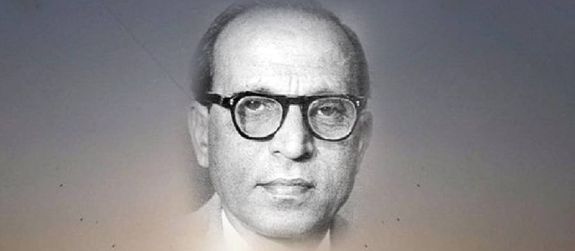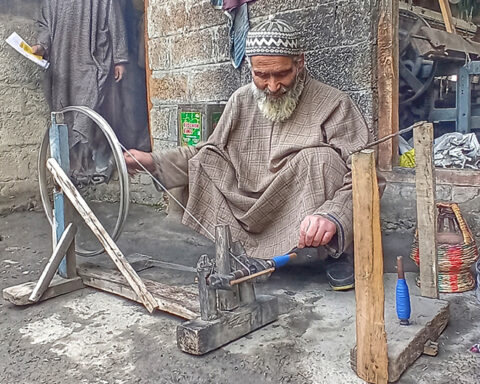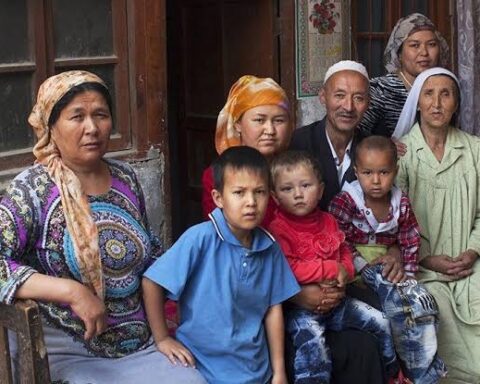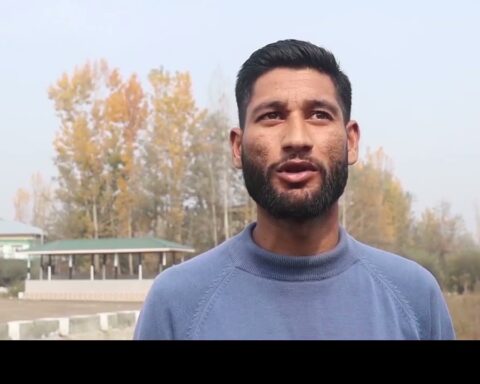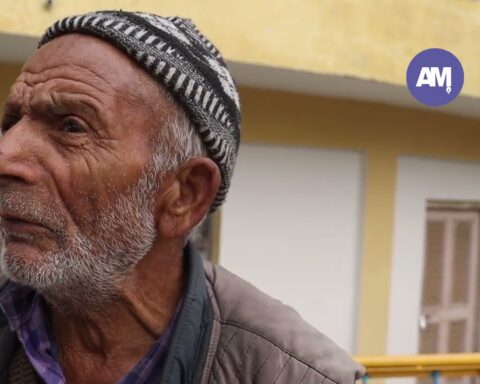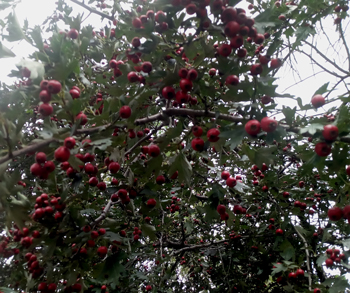At the tender age of five, Abu Sayeed Mohammad Makhdoom Mohiuddin Khurdi — popularly known as Makhdoom Mohiuddin (1908-69) — became an orphan. He used to sweep the floor of the village mosque and serve devotees during his childhood in Medak district of the erstwhile princely state of Hyderabad.
To pursue higher education, he moved to the city and earned a master’s degree from Osmania University. One of the brightest stars in the galaxy of the Progressive Writers Movement, Makhdoom started out as a trade union activist, taught Urdu at Government City College for almost seven years before he became a tall leader of the Communist Party of India (CPI) in Andhra Pradesh. In the following years, he went on to become Leader of the Opposition in the state’s assembly.
He was first arrested in 1941 and then in 1944 for inciting rebellion. On both the occasions, he had to serve a jail term of three months each. There came a phase in Makhdoom’s life when he had picked up the gun during the peasant’s Telangana Armed Struggle (1946-1950). When the infuriated Nizam, Mir Osman Ali Khan, announced a bounty on his head, Makhdoom went underground in 1946 for a couple of years.
A rebel in his poetry and life, Makhdoom continued mobilising youth against the British Empire and eventually for the merger of Hyderabad with the newly liberated Indian Union. He was again arrested in 1951 and put in jail for over one year. He was released after the CPI gave up the idea of an armed revolution and took to the democratic path.
Widely known for his film songs, Makhdoom is compared, for his soul stirring poetry, with the Telugu poet Srirangam Srinivasa Rao, popularly known as Sri Sri, Faiz Ahmed Faiz and Nazrul Islam, in literary circles. Many of his poems were used by filmmakers only after his death due to their immense popularity. Sample this poem, ‘Intezaar’ that features twice as a song, separately rendered by Kumar Sanu and Alka Yagnik, in Mahesh Bhatt’s Tamanna (1997):
Raat Bhar Deeda-e-Namnaak Mein Lehratay Rahay
Saans Ki Tarah Se Aap Aate Rahe Jate Rahay
(All night, in my moist eyes you continued to sway
Just like breath, you kept coming and going away).
Though ‘Phir Chhidi Raat Baat Phoolon Ki’, wasn’t originally written for Baazaar (1982), it gained phenomenal popularity soon after it appeared in the movie directed by Sagar Sarhadi.
Another iconic poem, ‘Ek Chameli Ke Mandve Tale’ which has been sung by several singers over the years remains immensely popular among his countless evocative and sensual poems.
Khuda Bhi Muskurata Tha Jab Hum Pyaar Karte Thay
(Even God used to smile when we would love each other)
Makhdoom was prominently featured in Kahkashan—a TV serial (1991-92) that was produced and scripted by Urdu stalwart Ali Sardar Jafri and directed by Jalal Agha. His character was played by the noted actor Irrfan Khan and the poetry was composed by ghazal maestro Jagjit Singh. This is how Jafri introduced him in the serial: “…the worthy son of Deccan, Makhdoom was a poet of labour and love. He was the excavator of the new era. Just like Farhad cut the mountain with his hoe in Sheerin’s love and became Kohkan (The mountain cutter), Makhdoon cut away the mountains of dark nights of slavery and his hoe was his poetry.”
During his lifetime, Makhdoom was equally admired by his fellow poets and connoisseurs of Urdu poetry. Literary giants like Raghupati Sahai Firaq Gorakhpuri and Faiz Ahmed Faiz wrote poems, appreciating his poetic work. ‘Aap Ki Yaad Aati Rahi Raat Bhar’, is one such ghazal written by Makhdoom. It has been beautifully rendered by Chaya Ganguly in Gaman (1978), the directorial debut of Muzaffar Ali. Faiz wrote a ghazal in his remembrance in the same format after he had passed away.
Firaq—who had poetically told his audience that “future generations will feel envious of you when they come to know that you have had the opportunity to see Firaq in person” – was so moved by one of Makhdoom’s ghazals, “Ishq Ke Shoale Ko Bhadkao Ki Kuch Raat Katay” that he wrote a complete ghazal in the same format, just to praise the concluding couplet of Makhdoom’s ghazal:
Koh-E-Ġam Aur Giran Aur Giran Aur Giran,
Gam-Zado Teshe Ko Chamkao Ki Kuchh Raat Katay
(Mountain of sorrow is getting weightier, more and even more
The oppressed must sharpen hoes to cut the night of oppression)
In his anti-war poem, “Jaane Walay Sipahi Se Poocho”, Makhdoom questioned jingoism and war. A cry for the young soldiers who are pushed into the flames of war to get killed, the song featured in Moni Bhattacharjee’s ‘Usne Kaha Tha’ (1960), a film based on a story set against the backdrop of the First World War, written by Chandradhar Sharma Guleri in 1915. The film was produced by Bimal Roy and directed by his assistant Moni Bhattacharjee. The pathos-filled song featured in ‘Kahkashan’ also

